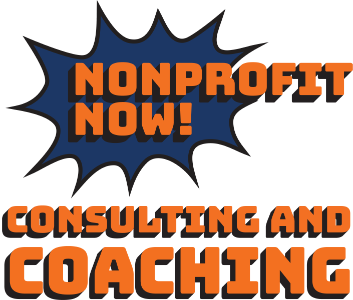|
This morning I was watching news of last week's stock market sell-off and I was reminded of my former life as a Wall Street financial services professional. Prior to joining the charitable sector in 2001, I spent nearly 14 years in that field including six building and maintaining a book of business with retail clients. I got to thinking about what I would have told clients watching this news. I know I would have been receiving early morning phone calls from clients. Emotions would have ranged from excitement over the perceived buying opportunity to sheer panic. There would have been a strong interest in doing everything from buying (after all everything is on sale!) to fear-based selling.
It occurred to me that there are several parallels with how we manage the expectations and aspirations of our volunteers and donors. While we may not experience anything as dramatic as a market correction, there are several similarities I found that may be particularly instructive: Have a plan and stick to it: One of the keys to managing challenging market conditions was reminding clients that we structured their portfolios around a long-term plan and temporary corrections are to be expected. It's the same in the nonprofit sector. It's always worth reminding your volunteers and donors that what you're asking them to contribute - whether its time, money or both - is based on a long-term strategy determined by potentially life-changing goals. The need to have a comfortable retirement or sending your children to college doesn't change because the market goes down. The need to provide homes for the homeless, feed the hungry, find cures and all the other vital missions doesn't change based on a piece of good or bad news or a compelling headline. Set realistic long term goals: In both fields, it's absolutely critical to set realistic expectations. It's easy to win clients by promising them a 14% return (or fill in the blank with another absurd number). It's even easier to lose them since that won't happen! It's the same in our field. Promising donors that this is the year your organization will eradicate homelessness, cure the #1 killer disease or whatever is a recipe for a non-renewing donor. Sharing your 1, 3 and 5 year impact goals and letting your donors and volunteers in on specifics of the plan provides a clear, understandable and time-sensitive road map that engages constituents and provides realistic expectations. Have confidence that you're the expert: Back in the day, we often used the analogy that we were the pilot helping our clients steer through turbulent market conditions. Simply put, we were the experts. Same here. Remember, we spend 8 to 10 (to ?? ) hours per day working in and around our respective missions. We should absolutely encourage an open and ongoing dialogue with those connected with our organizations so we can learn from them. At the same time, it's worth remembering that we are the experts and should feel confident providing the guidance needed when we experience challenges, adversity and even opportunities that impact our work.
0 Comments
This past Saturday, we held our Team NPF Cycle Inaugural Ride and it was an amazing experience. As I've been chronicling for the last few weeks, this is my first launch of a completely new cycling event. I've been fortunate to have the opportunity to launch a nonprofit from dream to vision to reality. I've also had very fulfilling roles where I've helped existing organizations and endurance events grow and reach new and exciting goals. But when it comes to launching an endurance fundraising event from 0 to 60, I am (well now I can say was) an absolute first timer.
At the young age of 50, I was a Rookie. Here are my three most important takeaways that I hope provide you with perspective as you plan and work on your next event whether new or existing: You're never too old or experienced to learn: I've been working in the nonprofit world for 14 years now and as noted above, I've had a wide range of roles and experiences. I thought I knew a lot going into this. As the old saying goes from some of the self-development programs "I didn't know what I didn't know." Be 150% open to being the new kid on the block - a rookie - and learning from people who know better. Value and learn from their hard-earned experience and leave your ego at the door. Know and accept that there are going to be surprises, surprises and more surprises: I had the great fortune to work with wonderful people on planning this event: highly experienced staff, endurance event management professionals and the most amazing leadership volunteers I could ask for. We had weekly calls, check-ins, logistics lists, and multiple planning tools. These were all incredibly helpful and no doubt made things run smoother. The simple truth is that for a first time event, you can't know what you're dealing with until you're dealing with it. That means everything from the quality of the routes to the level of attendance to the engagement of volunteers. And you certainly can't do a thing about the weather. So, simply prepare to be surprised, roll with it and move on. There is truly nothing better than seeing your volunteers be successful: Seeing a rider come in triumphantly across the finish line with a million dollar smile - even an incredibly exhausted million dollar smile - is more valuable than reaching our fundraising goal. It's true. We can find those dollars whether personal, institutional or corporate. We can teach people how to use all the bells and whistles on our cool peer-to-peer websites. But when an athlete decides that they're finishing this thing because they made a commitment to themselves and their donors and refuses to give up, that's priceless. That we have the opportunity to share that experience is absolutely priceless. That's why we do what we do. I was reading a post in one of my favorite linked in groups (Leadership Westchester) and one of our members posed an interesting question: What's the one thing you would tell a new leader? My suggestion was: Be yourself - Be utterly and solely yourself. I'm not sharing this because I think it's such an original piece of wisdom or genius. It did; however, get me thinking about the importance of being true to your own attributes, strengths and core values.
Truth be told, the above has been well covered. Bright and well-spoken people such as Tom Rath have written about the value of playing to your strengths - and even made a complete science of it - with books like Strengthsfinder. Similarly, in Quiet, a wonderful book by Susan Cain, she shares the value of everyone NOT being an extrovert though this personality type tends to be more celebrated than the opposite. She goes on to reflect that being an extrovert isn't bad. It's just that there is incredible value in the many ways we interact; quiet and loud, extrovert and introvert, leader and follower, team player and shining star - the list goes on. I thoroughly agree. Multiple skill sets and personality types make life much more interesting and make a team or organization thrive and hum. How much healthier and successful would organizations (for profits and nonprofits alike) be if they adapted some or all of the following approaches to workforce development? There is no best -there's only value and contribution: Organizations tend to use fairly standardized and noncreative measuring sticks when handing out the accolades. As some examples, what company doesn't hand out a trophy for highest revenue, top productivity and the like? But what about the contribution of the folks who don't want to be on the front lines and are happiest playing support roles? Your top salesperson won't stay that way forever if your customer service people can't back up the sale and keep customers coming back. All contributions are valuable and should be treated that way. Let people shine how they shine: I value stretching myself and my abilities as much as the next person. But let people grow from where they are, be who they are and develop their most valued skill sets. That's how they'll make the maximum contribution. Remember, everyone has a role to play and some play well on teams and some work better alone. Can you imagine someone interviewing and saying "I'm not a team player. I work better on my own. I care about the team. I want the team to work and succeed. I just work a bit better on my own." Wow! How amazing and valuable that kind of honesty be. Not to mention that depending on the work and role, it might be exactly what's needed.Leadership isn't for everyone: Yes, I'm putting it out there. Leadership isn't for everyone and may not be the proper promotion and best way to reward certain A Players on your team. For example, your top "Lone Wolf" salesperson that refuses to put a cover page on his all TP reports before faxing them and following any of the prescribed best practices probably isn't your best candidate for Sales Manager, despite his or her production levels. Promote them? Sure - but with a different sort of carrot i.e. bigger territory, better commission rate.I'd love and welcome any feedback on these thoughts. Hope to hear from you It's been a while since I posted anything. I'd love to say "I'm back by popular demand" or everyone's been asking "where are your posts?" Bummer but I'm not there yet.
Actually, I've been happily absorbed in event land. As I've written about before, over the past year, I've been working on the launch of a new cycling event that will benefit the National Psoriasis Foundation which will take place on August 15th (http://npf.donordrive.com/index.cfm?fuseaction=donorDrive.event&eventID=556 in case you want to learn more) and it's been an amazing experience. While I know I'll have tons of takeaways once I'm all through, I thought I'd share a few of the quick ones that are already quite clear. I think these can apply to the launch of any initiative, event, or just about anything new you might try - hope they help: Don't be afraid to try a little (or sometimes a lot) of anything: I've done everything from straight up neighborhood door knocking to cold calling to standard tabling at corporations. Stuff I thought would work for sure sometimes hasn't (i.e. standing in the lobby with the opportunity to meet just about every employee of a hospital). And of course, I was pleasantly surprised to get the buy-in of absolute strangers I thought would have no interest (met some wonderful people through reaching out on linkedin). All it takes is one (or preferably a few) awesome volunteers to build the foundation: Without a doubt, the most exciting thing is seeing one, two or maybe even many more volunteers get as excited as you are and start to lead the charge. Thank them, honor them and treat them like gold (because they are!) EVERYONE who gets on board is important: While some volunteers get incredibly excited, a few may just be along for the ride. No problem. If you treat them as described above,you never know what could to spark them to the next level - or simply keep them just happy and engaged? Write that extra thank you, make the phone call and treat them like their your next event Chair (who knows, they may be!) |
AuthorRobert Grabel is the President of Nonprofit Now! You can find his posts here and at www.robertgrabel.com Archives
October 2021
CategoriesWant to keep getting the latest New Thinking? Click Below...
|


 RSS Feed
RSS Feed
